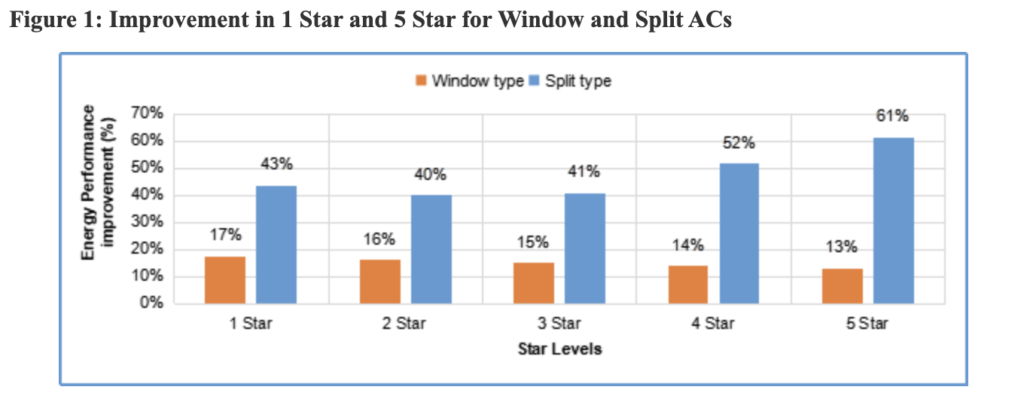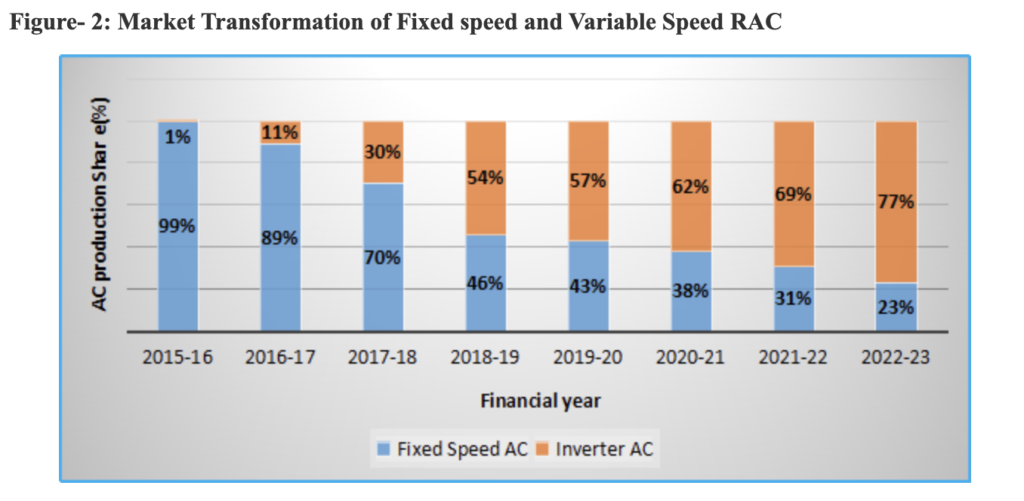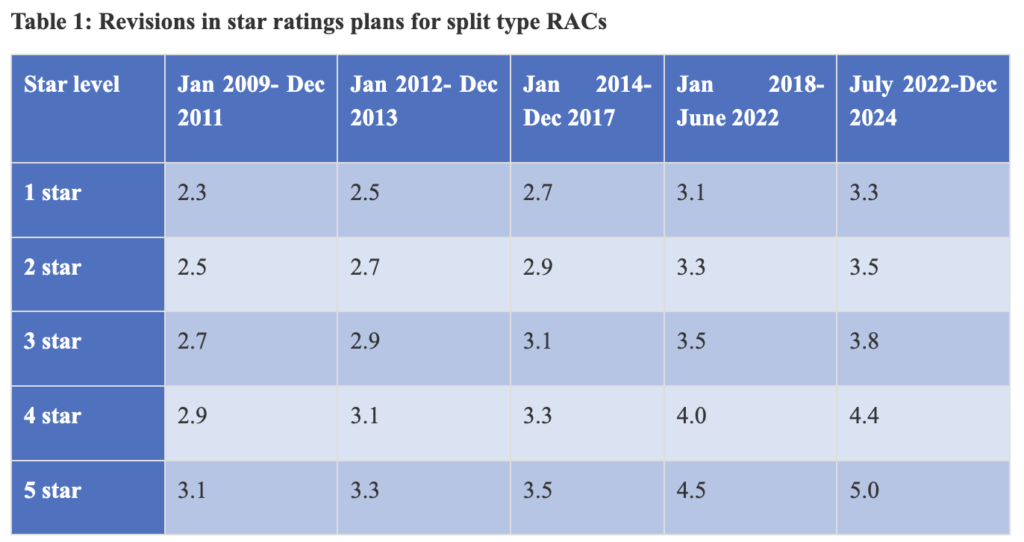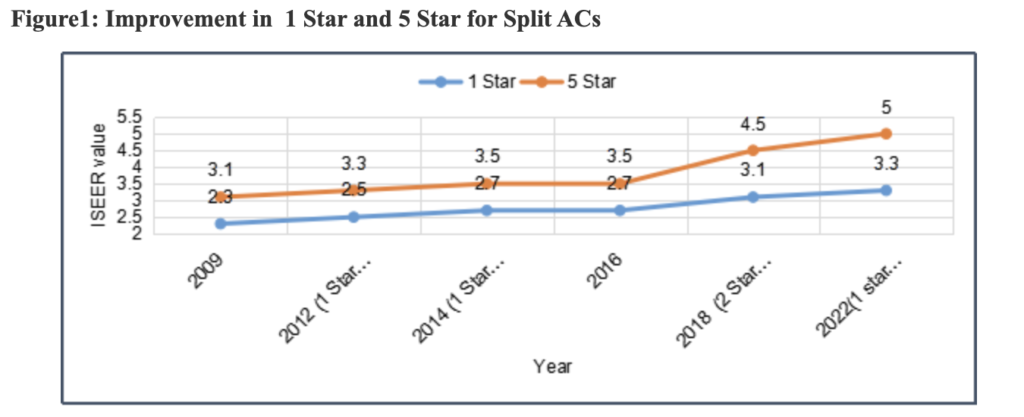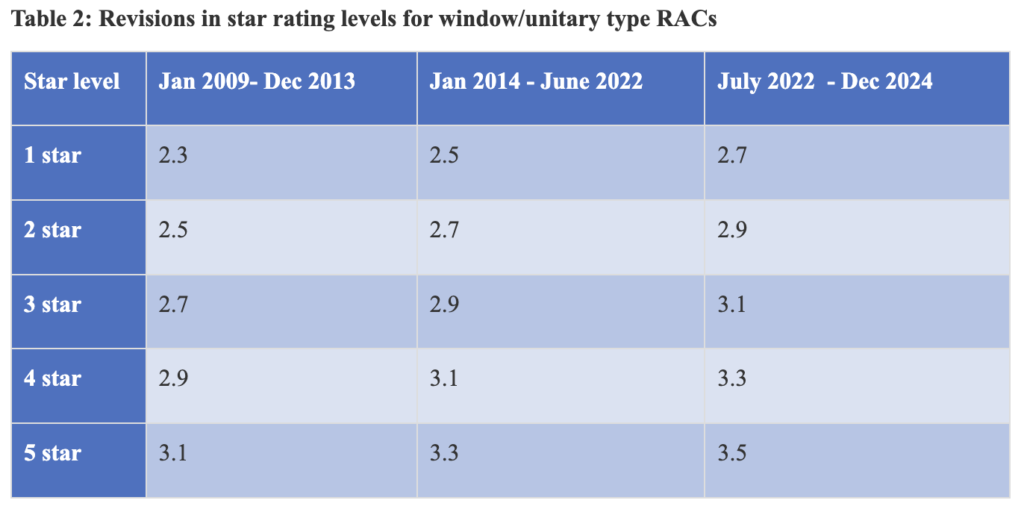India’s Energy Efficiency Policies Drive AC Efficiency and Market Transformation
BEE's Star Labelling Program Boosts Energy Efficiency in ACs, Inverter Models Gain Significant Market Share
India’s energy efficiency policies have yielded significant improvements in the overall energy efficiency of air conditioners (ACs) while also promoting the adoption of highly efficient inverter technology. According to data from the Bureau of Energy Efficiency (BEE), Ministry of Power, the energy efficiency improvement for split room air conditioners (RACs) is remarkable, with a 43% improvement for 1-Star and an impressive 61% improvement for the 5-Star level. Window RACs also witnessed improvements, with a 17% enhancement for 1-Star and a 13% boost for the 5-Star level.
The interventions by the Central Government have not only enhanced energy efficiency but have also propelled the market share of more efficient inverter-based ACs. In 2015, the market share of variable-speed (inverter) RACs accounted for less than 1% of the overall RAC market, which comprised 4.7 million units. To promote efficiency, BEE introduced a voluntary labelling program for inverter RACs in June 2015, which later became mandatory in January 2018, utilizing the Indian Seasonal Energy Efficiency Ratio (ISEER) as a new star rating methodology.
Over the course of eight years, from 2015-16 to 2022-23, the market share of variable-speed (inverter) RACs surged from 1% to a staggering 99%, while the market share of fixed-speed RACs decreased from 99% to 23%. The overall RAC market reached 6.6 million units by 2020-21, showcasing a significant shift toward more efficient technology. This transition is primarily attributed to the adoption of the variable-speed (inverter) RAC policy, which not only benefits consumers in terms of electricity and cost savings but also contributes to the overall sustainability of the sector.
These efforts align with the objectives of the India Cooling Action Plan (ICAP), which encompasses various measures such as reducing cooling demand, transitioning to eco-friendly refrigerants, enhancing energy efficiency, and promoting advanced technology options, all within a 20-year time horizon.
Shri Alok Kumar, Secretary, Ministry of Power, expressed satisfaction with the progress made in implementing the Star Labelling program, affirming that it is effectively achieving its intended outcomes. He emphasized that with India’s economy experiencing rapid growth, the demand for cooling is expected to increase exponentially in the coming decades. Under the ICAP, a detailed action plan has been devised to ensure efficient and sustainable development. Shri Abhay Bakre, Director General of BEE, reiterated the government’s commitment to successfully implementing the ICAP, emphasizing its comprehensive coverage across all sectors.
BEE has consistently revised the star rating plans for both split and window RACs to enhance the stringency of energy performance thresholds. Table 1 and Table 2 highlight the extent of efficiency improvements for split and window RACs, respectively. The revisions reflect technological advancements and size constraints.
The Star Labelling program for RACs was initially launched by BEE in 2006 as a voluntary initiative for fixed-speed RACs, subsequently becoming mandatory in 2009. In 2015, BEE introduced a voluntary labelling program for inverter RACs, followed by its mandatory implementation in January 2018. The labelling program now covers both fixed and inverter units under a unified scheme. Additionally, the split AC rating plan includes cassette and floor-standing/ceiling-mounted RACs.
The efficiency of RACs is measured by the Energy Efficiency Ratio (EER), which represents the ratio of cooling output to total power input at standard rating conditions. In 2018, BEE adopted the

